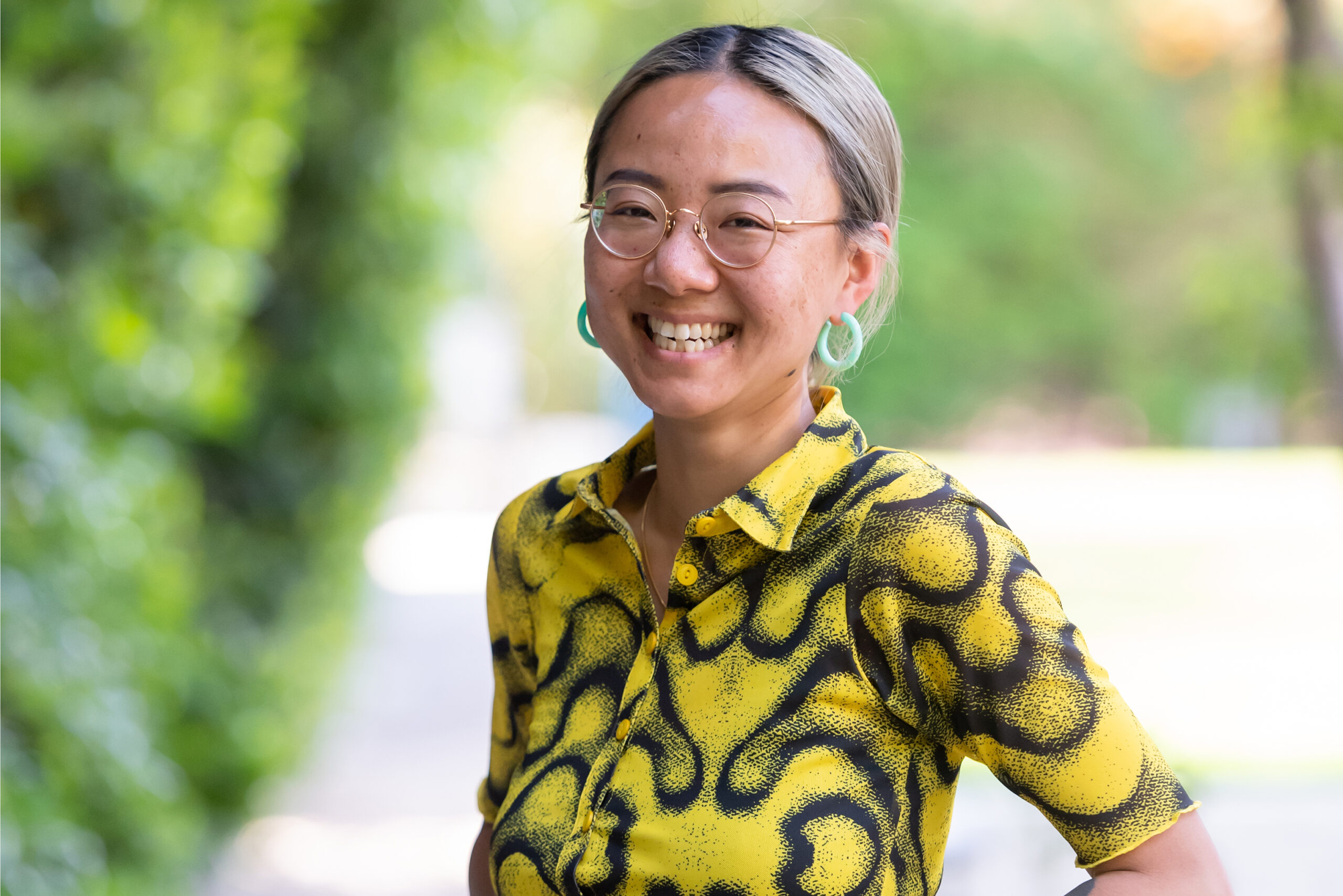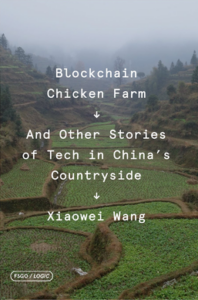Artist, designer, writer and coder Xiaowei R. Wang to present College of Design lecture April 10 via Zoom

AMES, Iowa — Artist and writer Xiaowei R. Wang (they/them/elle) will speak about the relationships between empire, art and materiality in a virtual lecture hosted by the Iowa State University College of Design.
Wang’s presentation, “An Archive of Witch Fever,” will be from 5:30–6:30 p.m. Wednesday, April 10, via Zoom. Register in advance to access the Zoom link.
In this free talk — part of the College of Design’s 2023-2024 Lecture Series — Wang will discuss their Witch Fever project, in which they use GAN neural style transfer to combine the botanical patterns of British artist, designer and socialist William Morris with photographs of Britain’s colonial laborers to produce a new set of patterns, turned into workwear such as gloves, aprons, and work jackets.
Neural style transfer is a technique that takes two images, a content image and a style image, and blends them together so the content image is in the style of the style image. In Wang’s project, the new images resulting from this process create seemingly hand- drawn patterns of “speculative botany” — fruits and plants that exist in the realm of an imagined history.
About the speaker
 Wang is a California-based designer, organizer and coder. They are the author of the book Blockchain Chicken Farm: And Other Stories of Tech In China’s Countryside, a selection for the 2023 National Book Foundation Science and Literature Program and New York Times Book Review Editors’ Choice.
Wang is a California-based designer, organizer and coder. They are the author of the book Blockchain Chicken Farm: And Other Stories of Tech In China’s Countryside, a selection for the 2023 National Book Foundation Science and Literature Program and New York Times Book Review Editors’ Choice.
Their multidisciplinary work over the past 15 years sits at the intersection of technology and social and environmental justice. Their work is also influenced by a glaucoma diagnosis in 2017 that has contributed to their vision loss.
Wang’s writing has appeared in TANK, transmediale, The Nation and more. They are a postdoctoral fellow at the Center on Race and Digital Justice, a Senior Civic Media Fellow at USC Annenberg and a fellow at Eyebeam. Additionally, they are faculty member for Elisava’s Master in Design for Responsible AI program with the Elisava Barcelona School of Design and Engineering.
Wang is a part of Collective Action in Tech’s Embedded Organizers community and serves as an advisor at Processing Foundation, an organization working at the intersection of open source, art and social justice. They were a 2022-2023 Luminary for Omidyar’s The Tech We Want program.
Their collaborative project FLOAT Beijing, an Index Design Awards finalist, created air quality-sensing kites and public workshops to challenge governmental data censorship. Other projects — from art installations to a community created radio for local bus lines in Beijing — have been featured by the New York Times, BBC, CNN and VICE, among others.
Wang received their bachelor of arts in visual and environmental studies from Harvard College in 2008 and master of landscape architecture from the Harvard University Graduate School of Design in 2013. They received their PhD in philosophy from the University of California, Berkeley, in 2023.
Contacts
Megen O’Toole, Co-chair, College of Design Lectures and Exhibitions Committee, motoole@iastate.edu
Lauren Johnson, College of Design Communications Specialist, laujohn2@iastate.edu
